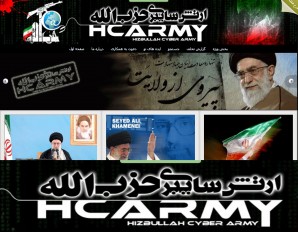
 Hackers find ways of controlling hardware and software through releasing malicious computer viruses, and likewise governments use ‘soft and hard means’ to quell internal dissident voices of those who choose to speak out against them. This is the hard-line taken by the Iranian regime in light of a zero-day cyber attack, in 2005, which reportedly caused one-fifth of the regime’s nuclear centrifuges to fail at its main enrichment facility.
Hackers find ways of controlling hardware and software through releasing malicious computer viruses, and likewise governments use ‘soft and hard means’ to quell internal dissident voices of those who choose to speak out against them. This is the hard-line taken by the Iranian regime in light of a zero-day cyber attack, in 2005, which reportedly caused one-fifth of the regime’s nuclear centrifuges to fail at its main enrichment facility.
Hitting harder the Iranian regime exploited this event with break-out retaliation that was fast and sudden. In an intelligence report published on the National Council of Resistance of Iran’s (NCRI’s) website (April 2016) it reveals a rhetoric wrapped up in the language of ‘soft’ and ‘hard’ means, and getting to the point translates into increased arbitrary censorship laws and at-will illicit laws to make arrests. Plus a platform for ramping-up levels of cyber espionage and sabotage ‘within Iran’ and to ‘strik[e] at “enemies” abroad’. The main Iranian opposition group People’s Mojahedin Organization of Iran (PMOI or Mujahedin-e Khalq, MEK) gathered this intelligence, of which cited in section 1.2, 2010 is posited as the moment that the Islamic Revolutionary Guard Corps (IRGC) commander Majid Sadeqian, met and calculated that the 2005 zero-day cyber attack, added by the 2009 Iranian uprisings was all the ammunition he needed to ‘clearly show the need to strengthen the cyber force into a robust organization’ with, if you will, a tagline to ‘protect and preserv[e] the regime’.
According to the Business Insider, Rouhani, the president who assumed office in 2013 ‘has given the IRGC an annual cyber-security budget of roughly $19.8 million (€17.4 million). These funds trail into high impact cyber warfare apparatus and a cocktail of big funding which may corrupt. Especially at a time in Iran when there’s aggressive growth in intelligence networks and communications technologies. In educational institutions for instance, like at the Sharif University of Technology, Iran’s equivalent of MIT, the litmus test for professors and students alike, some already accomplished in hacking technologies, will be in them avoiding to get entrenched in the puppetry of Iran’s clerical regime.
In terms of state sponsored cyber threats, the intelligence from the main opposition party PMOI/MEK’s report cites tangible threats to people’s wellbeing; in section 3.5 citing that ‘members of the clerical regime’s Majlis (parliament) openly support the illegal and inhumane actions of the Cyber Army’, evidenced further by a Majlis security committee member, who said (October 28, 2010) that “when it comes to cyber warfare, in the current circumstances we need to allocate a budget sufficient to acquire the equipment needed for this kind of war, so we can dedicate it to cyber warfare and the cyber army.”
By allocating budget, the regime has also been implementing proxy-servers that allow them deny or obfuscate responsibility for their actions of organized cyber warfare. The intelligence report, effectively, puts faces to the main players revealing affiliations of ruling regime and those against notions of civilized culture; in section 3.2 citing that ‘a cultural war is a serious threat to the regime’, adding that the ‘IRGC’s core responsibilities include confronting all enemy threats against the essence of the regime, the IRGC has a duty to intervene in this regard.’
On the capacity and capability to intervene the threat is greater then ever as told by this shift remarked on by security experts between 2012 and today, that in 2012 the capabilities were reported as being ‘not as sophisticated as those in China, Russia the United States or many of its Western allies.’ Yet after 3 years of investment, in 2015 it seems that Iran has ‘managed to build a cyber-capability that rivals the United States, China, Russia, the United Kingdom, and Israel, who are the most dominant actors in cyberspace.’ So, the robust apparatus of the regime to ‘suppress the opponents in cyberspace’ seems well in place; but also is the voice of the main opposition party PMOI/MEK and who by contrast invest in dialogue, and by making this report available to for all concerned, to read, and to make an educated interpretation of the events.
